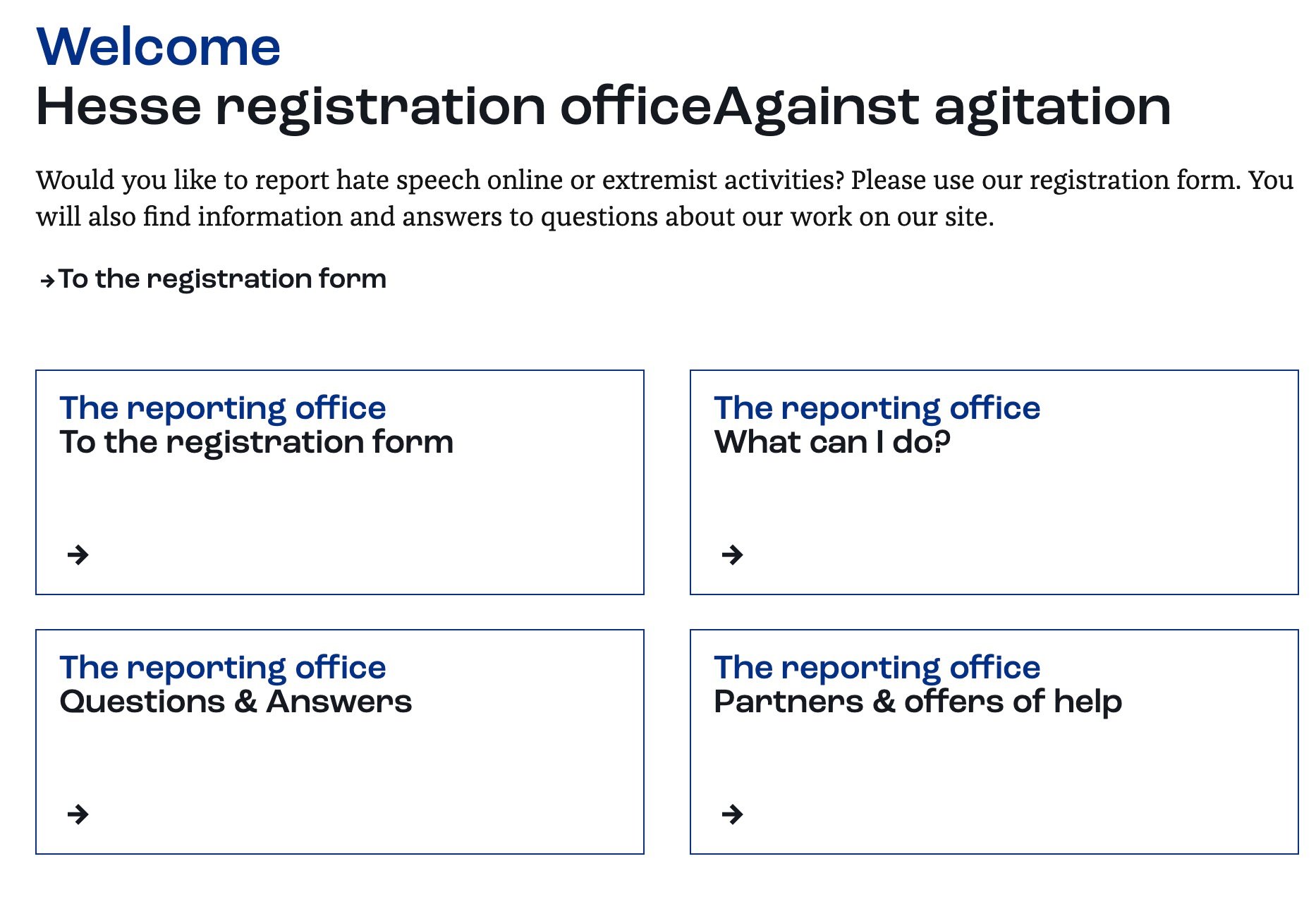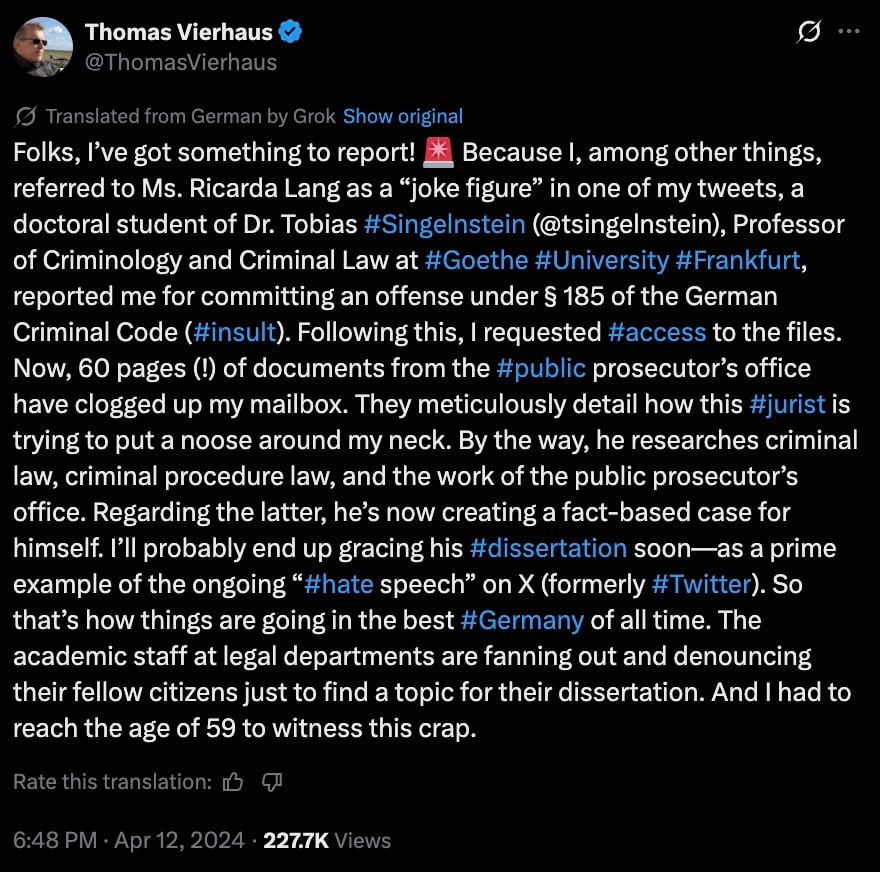A Düsseldorf-based economist has found himself at the center of a criminal case for making sarcastic remarks online about high-profile public figures.
Thomas Vierhaus is being prosecuted under Section 185 of the German Criminal Code for three separate X posts that government officials and journalists deemed insulting.
The total fine, delivered in the form of a penalty order from the Düsseldorf District Court on August 12, amounts to €16,100.
This is part of a growing trend in Germany where speech that irritates those in power increasingly results in legal consequences.
The first incident dates back to June 2023. Katrin Göring-Eckardt, Vice President of the Bundestag and a leading figure in the Green Party, had issued an alarmist post about climate change.
She cited droughts, wildfires, and high sea temperatures as proof that the climate crisis was unfolding “with full force.” Vierhaus, unimpressed, replied that “there is indeed an extreme drought, namely in Katrin Göring-Eckardt’s head.”
This offhand remark would likely have disappeared unnoticed if not for a doctoral student who had taken it upon himself to patrol the internet.
The student filled out a criminal complaint form on Göring-Eckardt’s behalf and sent it to her. She signed and forwarded it to the police, setting off the first of several investigations into Vierhaus’s social media activity.
The second charge came after Vierhaus discovered the identity of the same doctoral student and referred to him online as a “little snitch.”
Given that the student had already been submitting complaint forms to politicians for them to sign, the label was hardly unprovoked. Nevertheless, the student filed a personal complaint and claimed insult.
A third post earned Vierhaus further legal trouble when he criticized ARD journalist Moritz Rödle on July 7, 2023.
Rödle had defended Economics Minister Robert Habeck’s decision to skip a Bundestag debate on Germany’s heating law, attending a Bundesrat session instead.
Vierhaus responded with a post calling Rödle a “nincompoop” and added, “You still have a lot to learn in order not to be constantly fooled.”
Rödle filed a complaint through Hessen gegen Hetze, a government-operated online platform that encourages users to report speech deemed hateful or offensive.

Prosecutors combined the three allegations into a single penalty order.
Since none of the supposed insults involved direct threats or incitement, the state could not act on its own initiative. Each case required a formal complaint from the person allegedly insulted. All three individuals named by Vierhaus provided such complaints.
The penalty consists of 70 daily fines of €230 ($269) each.
The amount is based on a sliding scale that calculates punishment according to the accused’s income. Vierhaus has stated he will contest the charges in court.

Another layer to the case involves the April 2024 post where Vierhaus referred to the doctoral student as an “informant boy.”
The student had already filed complaints against Vierhaus for allegedly insulting several politicians, including Ricarda Lang, Janine Wissler, and Otto Köhler.
Vierhaus, upon reviewing the investigation files, learned who the student was. He later posted about the student’s university and supervising professor, but withheld the student’s name.
Germany’s legal machinery continues to target citizens for speech deemed offensive, sarcastic, or politically incorrect, often under the banner of combating hate. While once seen as a robust democracy with strong protections for expression, recent years have seen the country drift into a pattern of censorship, aided by sweeping laws and a growing infrastructure for policing online comments.










